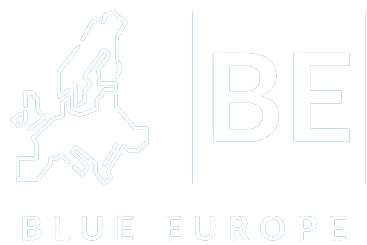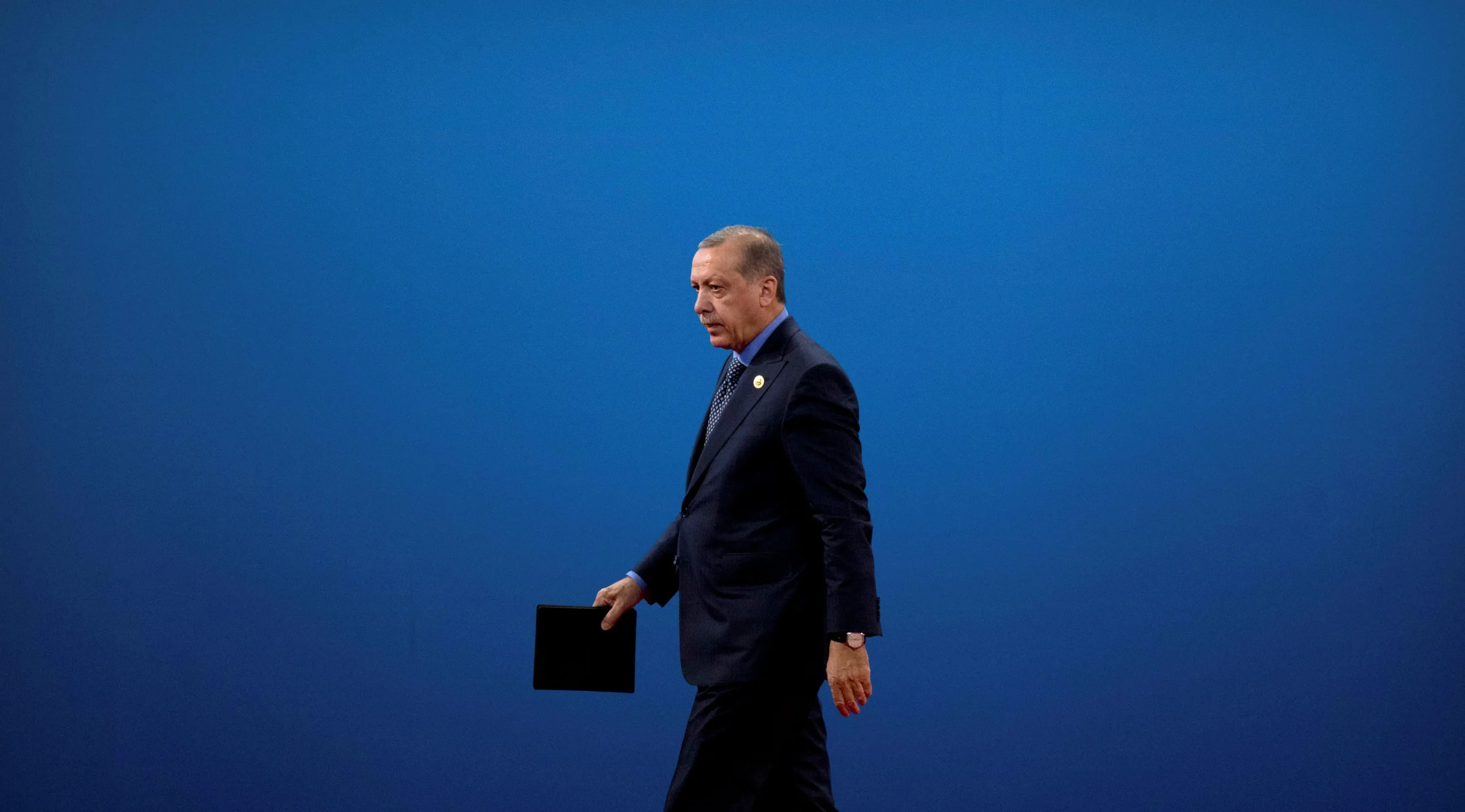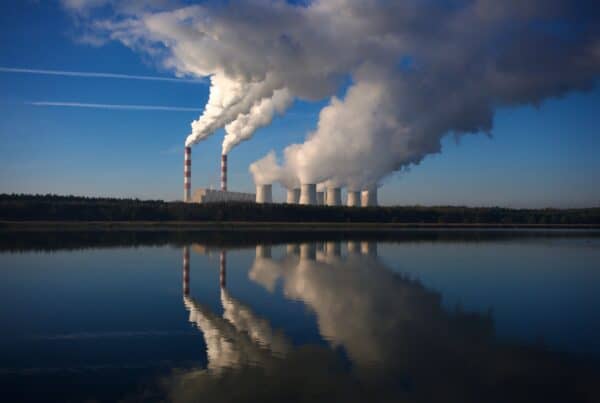By: Samuel Dempsey and Sébastien Sénépart (LinkedIn)
Introduction
On 2 September, Ankara officially requested to join BRICS, a sign of Erdoğan’s growing desire to balance Turkey’s geopolitical position between East and West, its hope to diversify economic opportunities as the country is riddled with inflation, and frustrations with lack of progress on EU accession talks.
Despite Erdoğan’s proclaimed balancing act between Europe and the United States with Russia and China, this decision comes at a time when the balance was already delicately in place, testing the limits of tolerance for Turkey’s Western allies, most of all in the NATO alliance.
This BRICS membership request may have set Erdoğan’s administration back much further than it realizes with its Western allies, whom it has courted for the past 20 years.
Erdoğan, who has been at the helm of Turkey for the past two decades, has sought a middle way for Turkish foreign policy in hopes of bolstering its global influence.[1] The administration is also pessimistic in its membership talks with the European Union, which have stalled since 2016.[2]
Though there is a cognitive dissonance here. Turkish EU membership has in large part stalled because of Erdoğan himself, through his iliberal governing style, which has generated democratic backsliding in the country. Though, Erdoğan may also be motivated by Turkish public perception concerning Ankara’s membership in the EU.
Public support for Turkey joining the EU is strong, but confidence in its actual membership is waning. A survey on perceptions of the EU found that over half of respondents (53%) think the EU is only delaying and has no real intention of admitting Turkey. Only 15.5% believe that Turkey will surely become a member if it meets its responsibilities, whereas 26.7% feel that Turkey is not ready for membership, even if the EU were to approve it.[3]
Turkey’s Un-Balanced Balancing Act
Most importantly for Turkey’s global influence, according to its vision for the Black Sea security, is its triangular balancing act between Russia, NATO members in the region, and non-NATO Turkish allies near the Black Sea.[4] Yet, post-Russian invasion of Ukraine, Turkey’s behavior has aggravated NATO and its members, threatening the viability and legitimacy of this triangular vision.
Turkey is not alone in this shift, as both Hungary and Slovakia have recently diverged from this triangular vision through closer cooperation with Russia. While similarly a detrimental strategy, Slovakia and Hungary both have insider status in being in the EU and NATO, which gives them more immediate leeway than Turkey can afford.
Turkey intends to craft an independent foreign policy stance, akin to the non-aligned movement of the Cold War era, but its position in NATO and market reliance on both Europe and the United States challenge its middle-way approach to external relations.
Simultaneously, Ankara’s key role in NATO, protecting the Alliance’s southeastern flank from potential Russian and Iranian security concerns, may bolster its ability to navigate outside the norms of the West, promoting both its own vision and that of the greater Alliance. Yet, this delicate balance requires a cognizant Erdoğan administration that recognizes its dependencies and need to meet the timing.
Frank Ocata wrote for CEPA that Turkey has been “testing the patience of its NATO allies in recent years, sometimes to near-breaking points.”[5]
Turkey’s Economic Challenges
A core pillar of the Alliance is the transatlantic commonality of “shared strategic and economic interests.” A member’s economics, alongside that of the transatlantic relationship, is a core component to the overall view of security in the Alliance.[6]
While the rest of the Alliance has been implementing independent, exhaustive sanctions packages against Russia, Turkey has been enabling illicit trade through its territory to Russia and committing direct sanctions evasion.
Through a semi-legal sanctions loophole that allows “blended” fuels into the EU if they’re labeled as non-Russian, Turkey has relabeled Russian oil shipments and sent them into the EU, leading to €3 billion in Russian profits in the year after the war. This isn’t a small oversight either, but a coordinated sanctions evasion plan. Following the war, Turkey boosted its Russian purchases by 105% compared to the previous year, while Turkey’s fuel exports to the EU rose by 107%.[7]
The U.S. has similar concerns. Matthew Axelrod, the U.S. Department of Commerce’s Assistant Secretary for Export Enforcement, who is at the head of efforts to keep sensitive technology out of the hands of Russia, has been in Turkey working to bring them into a compliant role for this mission. Talking to the Financial Times, he said, “We need Turkey to help us stop the illicit flow of U.S. technology to Russia.” Axelrod continued, “We need to see progress, and quickly, by Turkish authorities and industry, or we will have no choice but to impose consequences on those that evade our export controls.”
The U.S. Department of Treasury has already placed separate sanctions on numerous Turkish companies for supplying Russia’s military-industrial complex.[8]
As Güven Sak wrote for GIS Reports Online, Turkey’s economy has had a challenging past five years with “extreme inflation, the loss of FDI, and widening fiscal deficits,” all of which have led to internal instability for the Erdoğan regime, with growing support for opposition parties.[9] As a result, a year ago, Erdoğan appointed the new minister of treasury and finance, Mehmet Şimşek, to get things back on track.
Thus far, economic indicators indicate that this new plan is effective; though its successes have hinged on two key factors: firstly, adhering to a return to international U.S. dollar markets, and secondly, implementing a “normalization of Turkish foreign policy,” which includes closer collaboration with Western allies.
Still, the progress of this economic revitalization plan struggles to match the scale of the underlying issues. Even if inflation falls by 40% by the end of the year as planned, Turkey will still rank among the top ten most inflated countries globally. Given the magnitude of Turkey’s economic challenges, Erdogan cannot afford further risks.
Erdoğan’s Power Lies in his Proximity to Brussels and DC
Requesting BRICS membership, aiding in Russian sanctions evasion, and in July announcing willingness to host Syrian President Bashar al-Assad for a visit to Turkey to begin normalizing relations indicate that Erdoğan has lost the balancing act he has toted for the past two decades, threatening the domestic economic growth needed to bolster his stay in office.[10]
With growing cooperation, Turkey is the EU’s fifth largest trade partner, and while Germany is its largest trading partner, Turkey doesn’t sit in Germany’s top ten. The trade dependency heavily favors one side. Turkey’s BRICS membership is toeing the line, but it should be cautious not to cross it. A further pivot East would be more harmful for Turkey and the Erdoğan administration than it would for the EU or any Central Eastern European country.
Through from Ankara’s perspective, its long-standing grudges with its Western allies that inflame Erdoğan’s middle-way strategy. Turkey’s exclusion from the F35 fighter jet project as a result of Ankara’s fateful decision to purchase Russian S400 missile systems, as well as the U.S. establishing a Naval base in the Western Thrace region of Greece, are examples of such tension points.[11] While Greece is an ally through NATO, it is still Ankara’s main traditional rival in the Eastern Mediterranean since the 1970s.
While Erdoğan’s pivot East may signal apathy in current Western relations and a need for further partnerships, it may also signify a radical change to the traditional paradigm of Turkey’s foreign policy that will have long-term effects on Turkey’s standing in NATO or future EU accession.
In the short term, a pivot East for Turkey would undermine its security stance in the Black Sea, which is an essential point of power projection for Russia. As the major regional powers such as Greece or Romania, are deepening their efforts in contrast to Russia, Turkey’s pivot would stand only with Moldova’s pro-Russian breakaway region, Transnistria.[12]
Erdoğan must better recognize his ability to retain power lies in his proximity to Brussels and DC, or the West needs to begin to think about what an ally of Turkey looks like without Erdoğan’s leadership.
References
- Andrew Wilks, “After a huge setback in local elections, which way forward now for Turkey’s Erdogan? | AP News,” AP News, April 1, 2024, https://apnews.com/article/local-election-chp-erdogan-turkey-08b72132244340176a3ef52e6d2da6ff. ↑
- AP News. “Erdogan says Turkey may part ways with the EU. He implied the country could end its membership bid | AP News,” September 16, 2023. https://apnews.com/article/turkey-european-union-membership-erdogan-7e7d6d961e1ef4c0bff5d149831ab569. ↑
- BloombergHt. “Her 4 gençten 3’ü Türkiye’nin AB üyeliğine ‘evet’ diyor.” BloombergHT, April 14, 2022. https://www.bloomberght.com/her-4-gencten-3u-turkiyenin-ab-uyeligine-evet-diyor-2304236?page=2. ↑
- Hoover Institution. “The Black Sea Strategic Triangle In 2023 And Beyond,” n.d. https://www.hoover.org/research/black-sea-strategic-triangle-2023-and-beyond. ↑
- Okata, Frank. “Why We Must Tolerate Turkey.” CEPA, August 26, 2024. https://cepa.org/article/why-we-must-tolerate-turkey/. ↑
- Straus, Ira. “To understand NATO’s future, take stock of its centuries-long history.” Atlantic Council, August 23, 2024. https://www.atlanticcouncil.org/blogs/new-atlanticist/to-understand-natos-future-take-stock-of-its-centuries-long-history/. ↑
- Jack, Victor. “How Turkey became Putin’s ‘pit stop’ for selling camouflaged fuel to the EU.” POLITICO, June 19, 2024. https://www.politico.eu/article/how-turkey-become-vladimir-putin-pit-stop-sell-camouflage-fuel-eu/. ↑
- U.S. Department of The Treasury. “U.S. Continues to Degrade Russia’s Military-Industrial Base and Target Third-Country Support with Nearly 300 New Sanctions,” September 20, 2024. https://home.treasury.gov/news/press-releases/jy2318. ↑
- Sak, Guven. “How Turkey’s economic shift could alter its political landscape.” GIS Reports, August 13, 2024. https://www.gisreportsonline.com/r/turkey-erdogan-economics/; Adar, Sinem. “Turkey’s Electoral Map Explained: Actors, Dynamics, and Future Prospects.” Carnegie Endowment for International Peace, June 4, 2024. https://carnegieendowment.org/research/2024/06/turkeys-electoral-map-explained-actors-dynamics-and-future-prospects?lang=en. ↑
- Akin, Ezgi. “Erdogan open to hosting Assad, Putin as Syria-Turkey channels widen.” Al-Monitor: The Middle Eastʼs Leading Independent News Source Since 2012, July 5, 2024. https://www.al-monitor.com/originals/2024/07/erdogan-open-hosting-assad-putin-syria-turkey-channels-widen. ↑
- Kırbaki, Yorgo. “Alexandroupoli to become US naval base: Greek media.” Hürriyet Daily News, September 20, 2022. https://www.hurriyetdailynews.com/alexandroupoli-to-become-us-naval-base-greek-media-177061. ↑
- Chrysopoulos, Philip. “Putin Blacklists Greece and Cyprus as Unfriendly to Russia.” Greek Reporter, September 22, 2024. https://greekreporter.com/2024/09/22/putin-blacklists-greece-cyprus-unfriendly-russia-relations/; Dalay, Galap, and Natalie Sabanadze. “How geopolitical competition in the Black Sea is redefining regional order.” Chatham House, March 7, 2024. ↑





